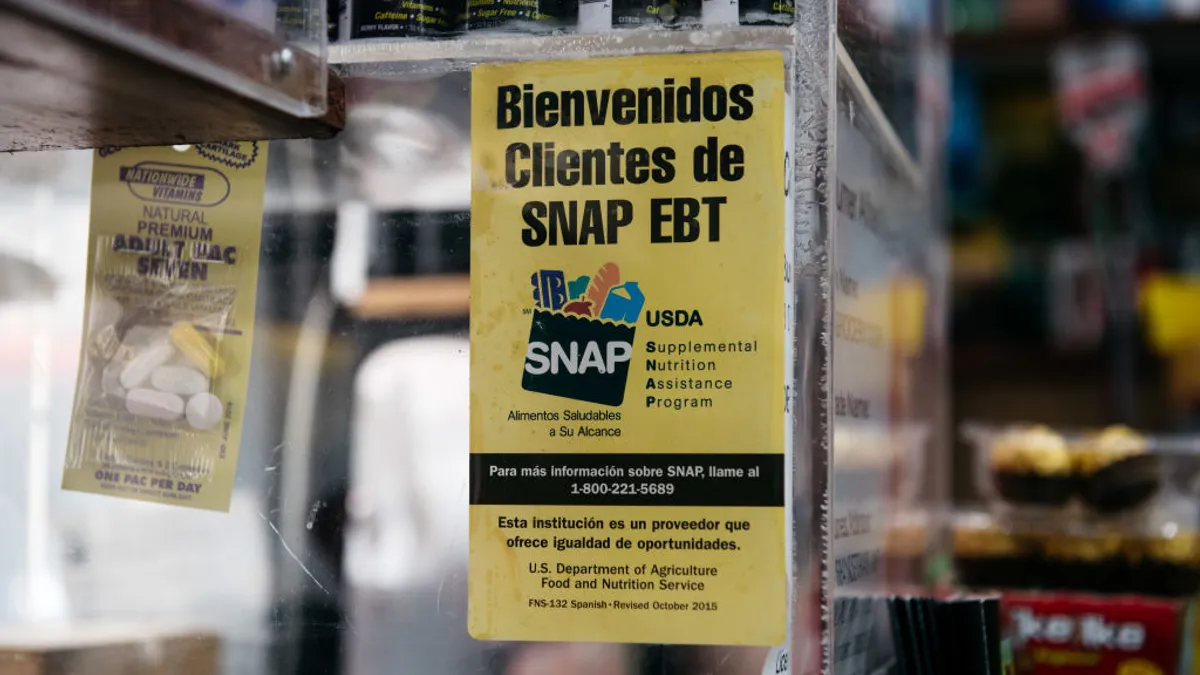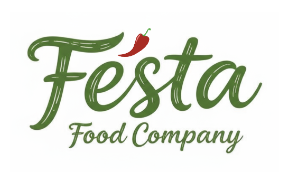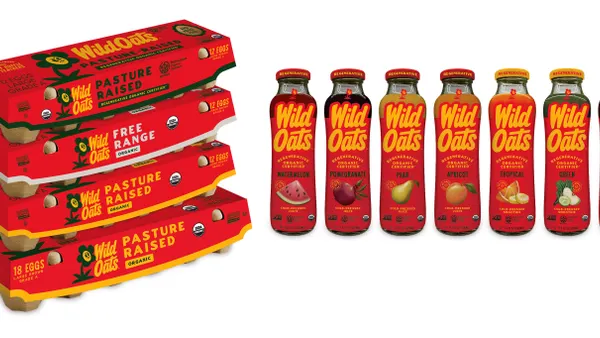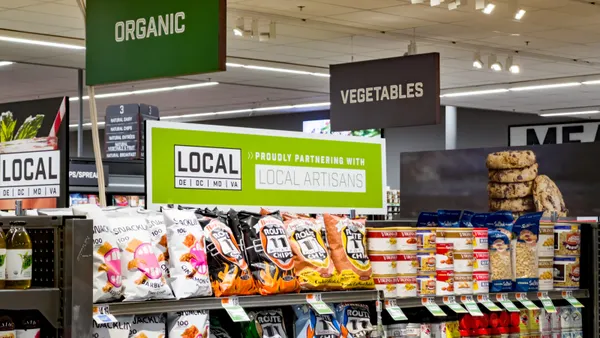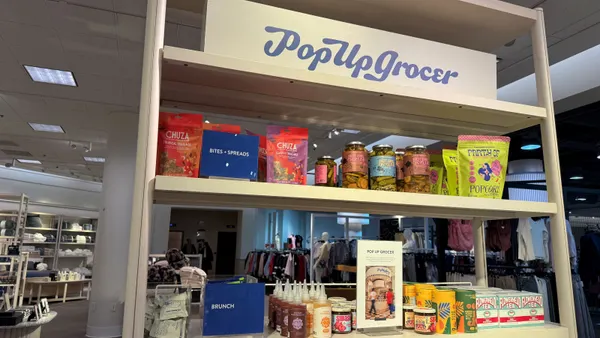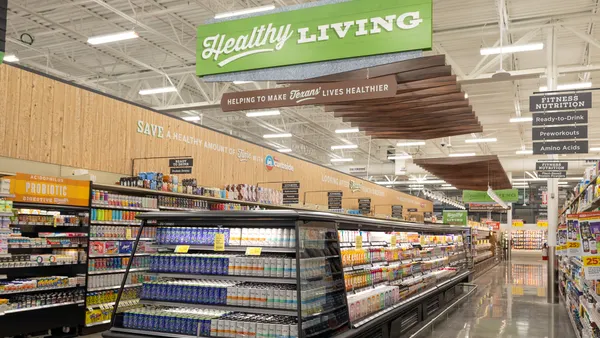Making some alterations to product assortments may help grocers as they brace for new federal policy and state waivers that affect SNAP, according to a new report by Coresight Research.
Already, 12 states have received approval from the USDA to restrict certain types of items, like candy and soda, from SNAP eligibility. While these states’ waivers aren’t slated to go into effect until next year, the grocery industry is facing operational and labor challenges with implementation and compliance. Each state will set and enforce its own restrictions.
With these policy changes, grocers — especially those in low-income and rural areas — are likely to see basket sizes shrink and reduced foot traffic, Coresight said.
Coresight noted that the SNAP changes will have unequal impacts on retailers. Mass retailers and larger grocers like Walmart and Kroger will face moderate headwinds, while smaller grocers and dollar stores that overindex on SNAP consumers will grapple with more changes as those shoppers adjust their spending, according to the report. Meanwhile, health-focused retailers will likely be cushioned from some of the SNAP item eligibility changes, Coresight found.
“Retailers that have already positioned themselves around health and wellness, such as Sprouts Farmers Market, will see minimal disruption because their customer base — and often their product selection — already leans toward healthier, SNAP-compliant items,” the report noted.
Overall, Coresight forecasts that the policy changes will push consumers toward seeking healthier options but potentially curb discretionary spending or spur them to switch to cheaper alternatives.
Coresight expects the state waivers to primarily impact grocers’ center store categories.
For retailers with high-SNAP-volume stores, Coresight recommends that they reposition or replace items that will no longer be eligible for SNAP benefits with ones that are and call out the alternatives with prominent placements.
Private label products can play a key role in helping consumers deal with affordability concerns, especially when it comes to staples like bread, dairy and protein, Coresight noted.
Target, for example, at the start of the year said it plans to add private label items as part of an expansion of its assortment of wellness-related items. Last year, Walgreens added a health-focused private label tier that includes more than 150 food and beverage products.
National players like Kroger and Walmart are in a strong position to tap their private label lines to help steer SNAP consumers toward healthier items while also capturing higher margins, according to Coresight. In addition, retailers can add smaller and more affordable pack sizes to help SNAP consumers make the most of their dollars, the research company said.
Retailers might want to consider making promotions for staple items more frequent and restructure their loyalty programs to reward high-frequency, low-spend customers who buy staples instead of discretionary items, Coresight added.
Along with suggesting assortment changes, Coresight noted that in-store signage, outreach to local communities and training for workers on which items are no longer SNAP-eligible can go a long way in helping shoppers adjust to the changes stemming from new policies.
“Many SNAP recipients may not be aware of the changes until they try to purchase restricted items, leading to potential frustration at checkout,” the report said.


